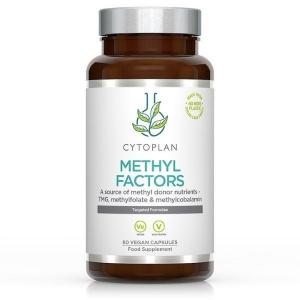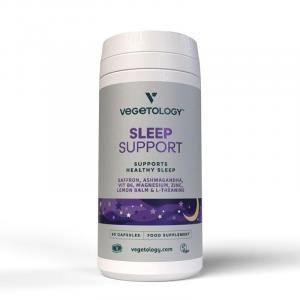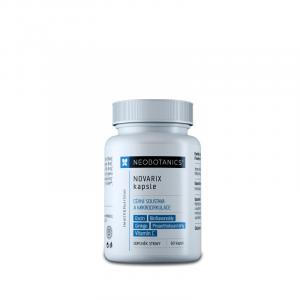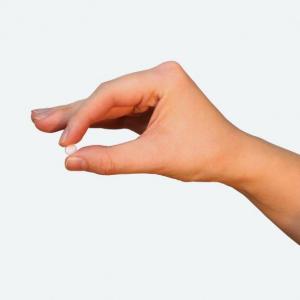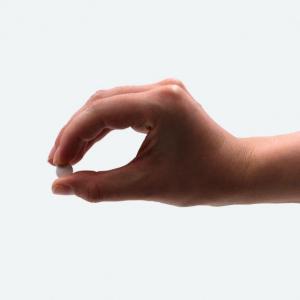
3-Day Egg Diet and Its Quick Weight Loss Results

What Does the Three-Day Egg Diet Offer and Why Is It Causing Such a Stir?
Eggs. One of the most common foods in households worldwide, yet regularly at the center of nutritional debates. Some praise them as a superfood due to their high protein content and essential nutrients, while others criticize them for cholesterol. Recently, however, the term 3-day egg diet has been popping up more frequently, promising quick weight loss in a short time. Numerous versions of this method are spreading on social media, with people both praising and criticizing it. So what is the truth about this diet?
What is the Three-Day Egg Diet?
This short-term diet is primarily based on consuming eggs in various forms, usually complemented with vegetables, water, and possibly some types of low-carb fruits. Typically, it lasts 3 days and promises a weight loss of 2–4 kg. It sounds almost suspiciously simple, doesn't it? Eggs are not only cheap and nutritious but also filling, which can help reduce overall caloric intake, which is crucial for weight loss.
In addition to eggs, the diet often includes spinach, broccoli, tomatoes, cucumbers, or grapefruits. Carbohydrates are significantly restricted – no sugar, bread, pasta, or alcohol. Even coffee with milk is not recommended. Only water or unsweetened green tea is usually allowed.
A simple example of a day's meal plan might look like this:
- Breakfast: 2 boiled eggs, half a grapefruit, water
- Lunch: vegetable salad with eggs and a few drops of olive oil
- Dinner: scrambled eggs with spinach, water
This diet is very strict and not meant for long-term adherence. The goal is usually quick weight loss, for example, before an event, photoshoot, or as a "reset" for a healthier lifestyle.
Why Does It Work – At Least at First Glance?
One of the main reasons the three-day egg diet is so popular is its simplicity. You don't have to count calories, prepare complex meals, or worry about what to have for dinner. Eggs are filling and contain quality proteins, fats, and many vitamins and minerals – such as vitamin D, vitamin B12, selenium, and choline, which is important for the brain.
Try our natural products
Another factor is the very low carbohydrate intake, which leads to rapid water loss from the body. When the body depletes glycogen stores (a form of sugar stored in the liver and muscles), water is lost with it – and this is often the reason for rapid weight loss during the first few days.
However, this effect is usually short-term. Once a person returns to their original diet, the weight often returns unless more permanent dietary changes have been made.
Does the Egg Diet Have Any Downsides?
Despite positive reviews online, caution is warranted. Nutrition experts warn that any one-sided diet based on a limited selection of foods is not suitable for everyone.
The egg diet can lead to a lack of fiber, which causes digestive issues – particularly constipation. There is also a lack of sufficient carbohydrates, which can be problematic for those accustomed to a higher energy intake. It's not uncommon for fatigue, irritability, or headaches to occur during these three days.
Moreover, even though eggs are nutritious, excessive consumption (e.g., 6 or more per day) can be problematic for some – especially if they have high cholesterol levels or suffer from liver disease. Although most recent studies refute the direct link between egg consumption and cardiovascular diseases, caution is advised if you have health restrictions.
A real-life example can be enlightening: Andrea, 37, tried the egg diet before a summer vacation. In three days, she lost 2.5 kg, but after returning to her usual routine, the weight returned within a week, and she felt weak and couldn't keep up with workouts at the gym. "I was glad to get rid of bloating, but I couldn't stick with it long-term," she admits.
Who Might the 3-Day Egg Diet Be Suitable For?
Short-term calorie and carbohydrate restriction can sometimes be helpful as a form of kickstart or transitional regime when changing one's lifestyle. If a person is healthy, does not suffer from any metabolic diseases, and understands that it is a temporary measure, the diet can serve as motivation.
For instance, if someone is transitioning to a healthier eating style, such a diet can help curb sugar cravings and kickstart a new routine. However, it is not suitable for athletes, pregnant women, teenagers, or individuals with eating disorders.
The key to success is realizing that the egg diet is not a miraculous solution but rather a short phase within the broader context of a healthy lifestyle.
What to Do After the Diet Ends?
The biggest mistake is returning to the original – often unhealthy – eating style. If after three days, one returns to bread, sweets, and fried foods, not only will the lost weight return, but it may also worsen digestion or cause a yo-yo effect.
The ideal is to gradually introduce a less drastic but sustainable plan after the egg diet. More vegetables, whole grains, legumes, healthy fats, and quality proteins. Eggs can remain part of the diet, but not as the main component of every meal.
"A healthy lifestyle is not a sprint but a marathon," says nutrition therapist Karolína Hlavatá for Czech Television. And therein lies the core issue of most quick diets – the lack of a long-term strategy.
Alternatives to the Egg Diet and Healthier Approaches
If someone appreciates the structure and discipline that a short-term diet brings, they might consider a less extreme approach, such as the Mediterranean diet, which is rich in fish, vegetables, legumes, and healthy fats. Or intermittent fasting, which doesn't restrict specific foods but rather adjusts meal times.
In the long run, the best choice is to find balance. Learn to listen to your body, eat sensibly, and exercise regularly. Eggs can play a significant role as part of a diverse and balanced diet – but not as the sole source of nutrients.
Whatever regime someone chooses, they should ask themselves a simple question: Is it sustainable?
Because the answer to that question often determines whether the diet ends in success – or another disappointment.

